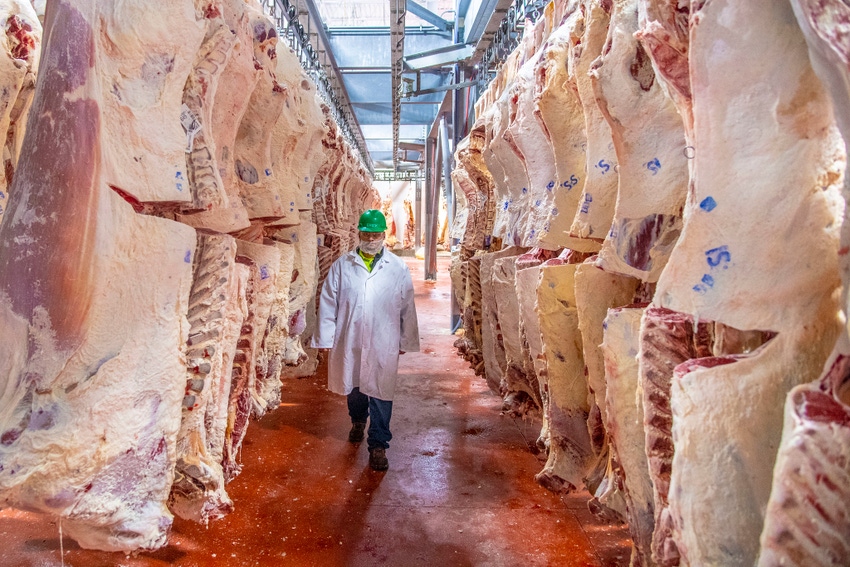Iowa State investigating ag supply chain resiliency
New grant will allow researchers to find short- and long-term solutions against future disruptions like COVID-19.
September 25, 2020

A new grant will allow Iowa State University researchers to study how the COVID-19 pandemic has affected the U.S. food supply chain, with the goal of finding short- and long-term solutions to increase resiliency against future disruptions.
Iowa State associate professor of economics Keri Jacobs said the pandemic led to major disruptions in a number of agriculture industries.
“These disruptions were unique because we didn’t experience a shock to the supply of agricultural products; it was largely a shock to our processing capacity through reduced labor,” she explained.
Jacobs noted that the lack of labor was especially problematic in agriculture sectors, because processing capacity and the entire system were built based on the known biological processes for products like eggs, milk, beef and pork.
Furthermore, as the pandemic first spread, restaurants, bars and schools closed, quickly changing consumers’ food consumption habits and needs, which created further disruptions in the supply chain. “Plants couldn’t make the switch quickly enough to meet the change in demand and had inventory prepared for a market that no longer existed,” Jacobs said.
Consumers staying home en masse also drove down the need for gasoline and, therefore, ethanol, which had consequences that worked back into the food industries. “Carbon dioxide and distillers grains are byproducts in ethanol production and are both important inputs in other supply chains,” Jacobs said, explaining that distillers grains are used to feed livestock, and carbon dioxide is a preservative and key input in packaged liquid products.
“When ethanol demand tanked, so did the production of those two byproducts. So, in this case, the disruptions seeped into other food processing sectors,” she noted.
To help understand how and why COVID-19 disrupted the agricultural supply chain the way it did and to help prevent similar things from happening in the future, Jacobs will lead a newly funded U.S. Department of Agriculture study. The project, “Agricultural Supply Chain Disruptions: Costs & Mitigation Strategies to Enhance Resiliency of Ag Supply Chains,” aims to enhance the resiliency of the beef, pork, dairy and egg supply chains in the Midwest in the face of future disruptions and was recently awarded a two-year, $458,000 COVID-19 Rapid Response Program grant from USDA's National Institute of Food & Agriculture. The grant is part of more than $14 million in USDA funding announced to help study the most critical issues facing consumers during the pandemic.
The project's research team also includes five other Iowa State faculty: economics professors John Crespi, Chad Hart and Dermot Hayes; associate professor of supply chain management Bobby Martens, and associate economics professor Lee Schulz.
“Our short-term focus is on developing data visualization tools and forensic price- and volume-based decision tools,” Jacobs said. The visualization tools will be designed to help agricultural producers and firms recognize and adapt to stressors in the supply chain system, such as future COVID-19 outbreaks.
“We don’t know whether there will be another type of disruption similar to COVID-19, but the COVID-19 disruptions have the potential to flare up again this fall and winter or be compounded with flu season,” she said.
The long-term goal of the research is to explore the risk/return trade-off in supply system changes to improve future resiliency during disruptions.
“We will, among other things, explore potential risk-mitigating strategies that firms in the beef, pork, egg and dairy supply chains can use to reduce the impact of the current pandemic or future similar disruptions,” Jacobs said. “Fundamentally, this disruption made it very apparent where we can benefit from better information, and that is what our project aims to do: generate more informed and synthesized market information to aid supply chains.”
You May Also Like



